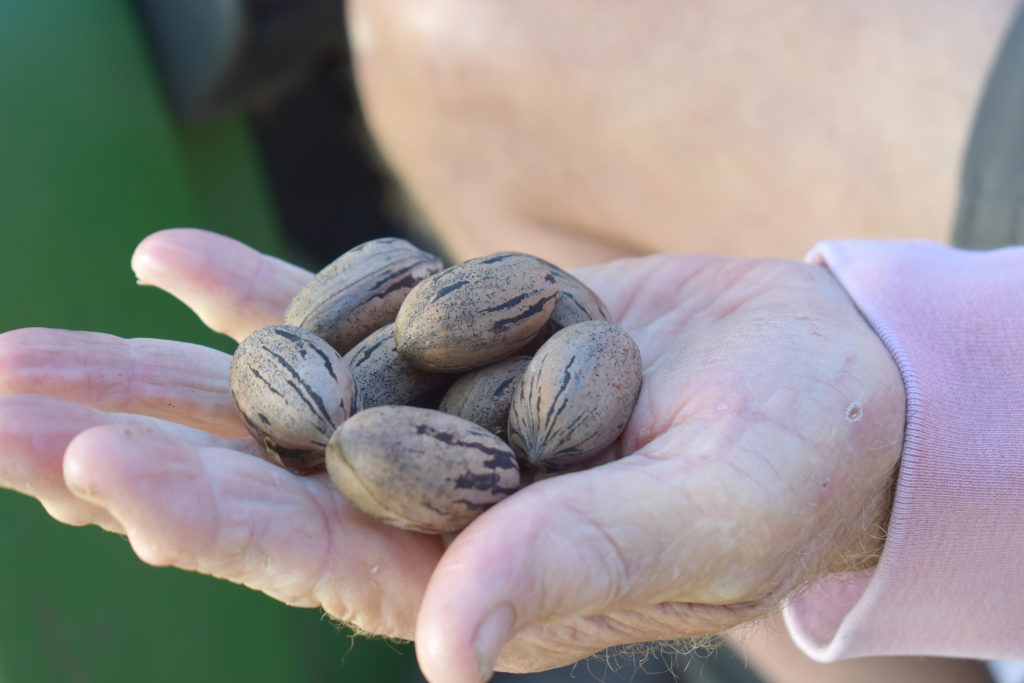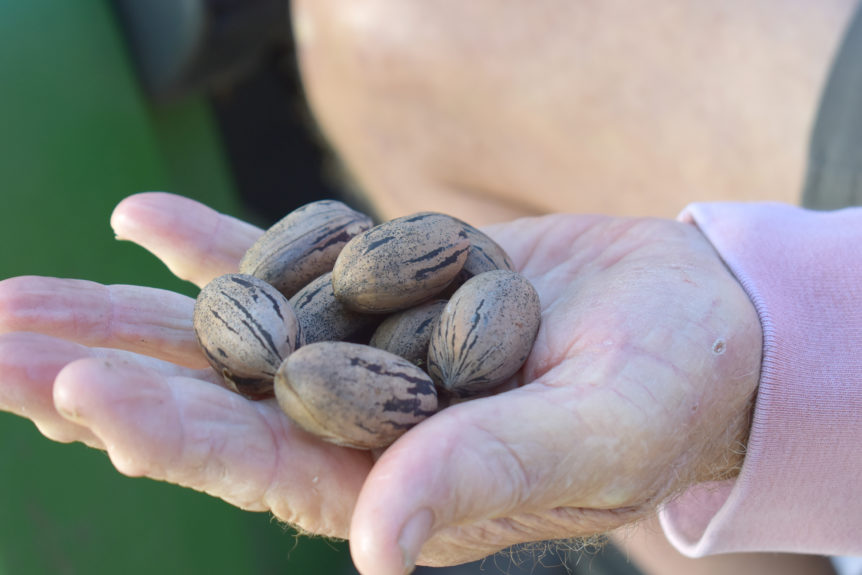
By Clint Thompson
India provides great potential for Southeast pecan producers looking for a dependable and profitable export destination. A customs code, though, is keeping growers from enjoying greater trade success with the heavily populated country.
“Right now, we’re only able to sell shelled pecans there. We’re working really hard to get a code, a customs code, so we can sell in-shell (pecans). That’s how they want to buy them,” said Anne Warden, CEO of the American Pecan Council (APC) and American Pecan Promotion Board.
University of Georgia (UGA) Cooperative Extension pecan specialist Lenny Wells added, “It’s basically a phytosanitary code. Each product that goes into India has to have it. They’ve got one for shelled pecans, but they don’t have one for in-shell pecans yet. Of course, the APC, Georgia (Pecan) Association, Georgia Department of Agriculture have all been pushing hard to get that done. There’s been a lot of talks with Indian buyers; between the Indian government and our government to try to get that smoothed over. I think now it’s just a matter of some paperwork. I think it’s all pretty much agreed to. They’ve got to get the rubber stamp to move forward.
“Getting that code that we need to get those nuts, those in shell nuts into India, we really need that. If we can get that, I think we’ll start to see things start to move there. It’s still going to take some time, but you’ve got to start somewhere. There is a tremendous amount of potential there.”
Selling in-shell pecans would be a financial boost for growers who need to cut as much expenses as they can.
“We can talk about the shelled meats all day. Growers are going to benefit when there’s a market; a bigger market for shelled meats, of course. But where growers really have the biggest benefit and where we see big change for growers is when we have a good in-shell market,” Wells said. “That’s one less step, one less person in between the grower and his dollar. When in-shell market is thriving, the growers thrive.”










